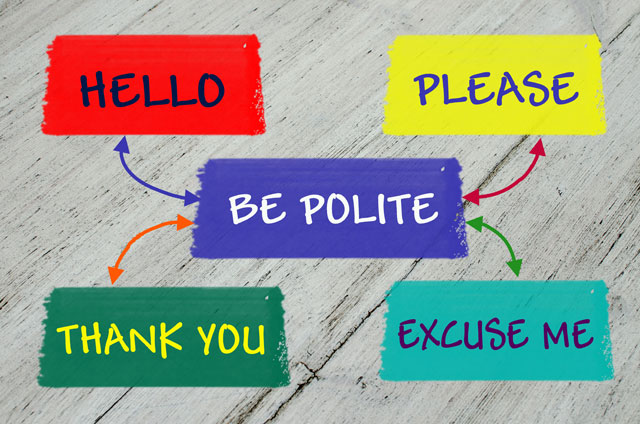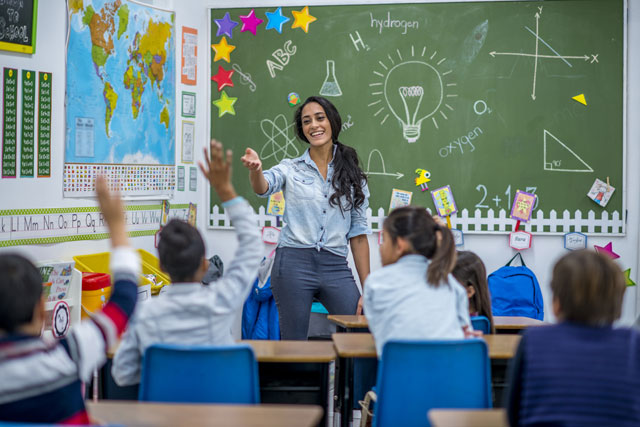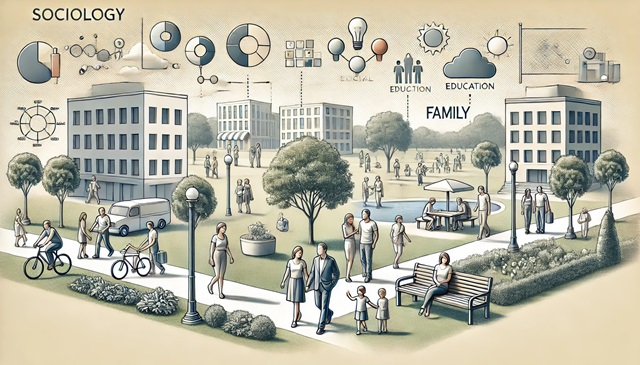Supporting Cognitive Abilities and Education in Positive Parenting
For children to have the most optimal outcomes requires well-developed cognitive abilities. These abilities interact with every facet of life, and are especially important in an educational sense. Positive parenting facilitates the development and refining of cognitive abilities, acquiring basic literacy, and helps children have motivation and a positive attitude toward schooling. In this article, we will look at what makes up cognitive abilities, learning theories, and how to support good educational outcomes.
What are Cognitive Abilities?
Cognitive abilities are mental processes that include attention, memory, language, reasoning, and executive functioning. Simply put -- it's about thinking. These abilities develop rapidly from infancy through adolescence. Humans rely on cognitive abilities to acquire meaning from our experiences. Therefore, cognitive abilities are not the knowledge we possess, but the tools we have at our disposal to gain that knowledge. Here's a working definition for each:
Attention. Attention is choosing and then focusing on events and objects, while we process information about them. At the same time, we have to not get distracted by other events and objects.
Memory. Memories are representations of events that are stable. We have two main kinds of memory. One is short-term, or working memory, where we remember for just a few seconds or minutes. With practice, these can become the second kind, which is long-term memory. Here, we can remember something for as long as our entire lifetime.
Language. Language is the way humans communicate. But it is also used to organize our thoughts. This is especially useful for building memories and solving problems.
Reasoning. Reasoning is how we use critical thinking and logic to solve problems. This is a higher-order cognitive ability that calls on attention, memory, and language. Critical thinking is when we consider all aspects of a particular problem or situation. Logic is when we are systematic, as our thinking moves among related thoughts.
Executive Functioning. These are particularly advanced higher-order cognitive abilities. They are a set used to control thinking. By the way, these also help control emotions and behavior. In addition to attention, two other important processes are planning and flexible thinking. Flexible thinking is being able to consider more and different solutions. This makes it also very related to creativity.
How Much Impact Can Parents Have?
Some parents are under the impression they have little influence on their children's cognitive abilities. They've heard or read that intelligence is hereditary and make the assumption that whatever intelligence a child is born with, is fixed and lifelong. However, the real truth is there is an inherited component, but it's on a continuum. It's the environment that determines if intelligence is expressed at the low end or high end of a child's potential.
Now, let's look at the other side of the coin. Other parents believe they have to be on an extreme plan from the moment their child is born, and for some even before, to make their child "super" smart. Such parents buy all the toys marketed for making babies and children smarter. They schedule practically every moment of the child's life around academic learning. They set expectations for perfection. Essentially they're obsessed with getting not just to the high end of a child's potential, but well beyond.
Neither of these views is actually in the best interest of the typical child. Parenting and the environment do indeed influence cognitive development and functioning, but to go to the extreme at the expense of the physical and the social-emotional will eventually backfire. This is because all domains interact with and influence each other. It's practically impossible, in reality, to separate them out. We do so for the purposes of examining and understanding each.
Learning Theories
To promote children's cognitive abilities, it's useful to have a basic understanding of the relevant theories of learning and cognitive development. We will give special attention to language for two main reasons. One is the major foundational role language plays in thinking, and the second is that language is so sensitive to being learned, especially from parents. As we covered the basics of Jean Piaget's theory in the article on understanding child development, here we will look at Vygotsky and at Information Processing Theory.
Vygotsky
Lev Vygotsky was a contemporary of Piaget. They were born in the same year, but whereas Piaget was in his 80s when he died, Vygotsky was in his late 30s. Even though Vygotsky's career was cut short, his ideas have remained very important. Vygotsky did not have a stage theory of cognitive development, but rather, focused on cognitive development and learning as continuous and as a result of social interaction. His work is called a social cognitive learning theory.
Vygotsky believed the drive for the development of cognition lay in children wanting to be competent members of their social group and learn the skills they see valued. As children are less skilled, the gap between what children can do on their own and what they can do with modeling/guidance, is called the "zone of proximal development." It's the zone, or distance, between the child's current developmental level and their potential developmental level, which is close to their achievement and hence is proximal.
Guided and modeled interactions allow the child to construct knowledge together with a skilled facilitator and reach their potential. This is most often the parent, but can be other adults, siblings, or peers, if they are competent. The term scaffolding is used to represent the support given to the child as he/she masters a skill. One of the most important supports is language. This goes beyond verbal directions. It includes helping the child use logic and reasoning through guided questioning. A vital part of the process of scaffolding is that when the child is ready, the parent removes the support to allow the child to do an activity on his/her own.
For example, a preschooler may be attempting to put a puzzle together and is becoming frustrated. The parent guides the child to use the strategy of finding the corners, or perhaps to follow the picture on the box. The parent can use this process a few times and then use a more distant strategy to guide the child, for example, "Think about how you figured out before how the pieces go together. What was that?"
An important developmental change that occurs is the child first uses external speech where he repeats the steps, the rules, etc. for how to complete a task. Once the child has a script, this becomes internal speech. Vygotsky believed language is what promotes cognitive abilities. For Vygotsky, the parent is the most central teacher of children. The parent's capability and expertise in using language to guide thinking makes all the difference.
Information Processing
Information processing theory is not associated strongly with one theorist. It's made up of so many components that researchers tend to focus on specific areas. What information processing has brought to our understanding is to more finely explain why children do the things Piaget and Vygotsky observed. It has been possible by thinking more about the brain and how it processes and uses information in real time -- often using a computer model of inputs and outputs.
As children mature physically, their brain's prefrontal cortex gets better organized. Along with this, they experience attending to and dealing with more information, practice how to make associations and categorize, and move all this into long-term memory.
Children's ability to pay attention is developmental. While it's true that younger children have shorter attention spans, attention is much about interest. If you've ever tried to get a toddler to stop an activity she's really into, you can see that the range of attention varies. However, it's hard work in the beginning to put this energy into paying attention.
While young children do form memories, the ability for these to become connected with other memories, so they become long-term, takes quite a long time. The main work is that a map of sorts is laid down, which allows many more paths for finding information, or memories. The brain structure called the hippocampus is vital for memory, for reasoning, and for executive functioning. The brain cells needed to make links between various regions of the brain, along with the synapses being dense enough, doesn't really get going until the second year of life, and continues well into the teen years.
What this means is that getting frustrated with a child and believing they aren't paying attention on purpose is typically false. It also means children's ability to remember is developing, so getting exasperated because they can't remember what you think they should isn't likely to help them improve. More likely, it will cause much damage to their self-esteem.
On the other hand, positive parenting means being aware of your child's physical cognitive limitations, while providing sensitive and meaningful stimulation and experiences. This will, without a doubt, help them become better at attention and memory and from there, reasoning and executive functioning.
With regard to language, while it is very sensitive to the environment, children are also hard-wired for language. Brain imaging studies measuring electrical activity have found the neural circuitry of the brain is influenced by being exposed to language as an infant. This is even before a baby can speak her first word!
From day one, humans attend and remember language in a remarkably sophisticated way. Babies are strongly interested in the faces, voices, and actions of people. This makes them very motivated and adept at picking up language. Typically, children are able to produce speech at about 12 months of age, when two areas in the left hemisphere of the brain connect. These are Wernicke's area for language comprehension and Broca's area for speech.
Early childhood is a critical period when children can more easily learn language; but throughout childhood, and into the teen years, parents play a powerful role in language development. Positive parenting means that through extensive talking and reading together, beginning at birth, which becomes ever more complex as children move through childhood and into adolescence, parents can ensure their child has highly developed language skills. In addition to the role language plays in social communication, it serves as the foundation for success in education and schooling.
The Role of Education
We now live in a post-industrial society. The work needed is increasingly mental in nature-depending on ‘intellectual capital'. Jobs of low skill or easily automated are no longer able to sustain large numbers of our citizens. The good news is that today's children are firmly entrenched in the information age. They have access to a seemingly unlimited amount of information and it's instant!
However, traditional schooling hasn't caught up. We still have an education system more about memorization than about utilization. In addition, the U.S. is extremely diverse culturally and socioeconomically. There are hundreds of languages that children come to school speaking as their first language. We have very high poverty rates for young children compared to other developed countries. This makes it challenging for our educational system to meet the needs of all children.
How then can parents both support their children doing well in the current educational system and make sure their children are prepared for a future likely to be a different reality?
Literacy
For both success in schooling and in life (daily and career), being literate is absolutely essential to success. We often think of literacy as just about reading and writing, but children must also have mathematical, science, and technology literacy.
The shared element about literacy regardless of the subject, is that it's more than having just a basic knowledge like how to pronounce words, write a simple essay, know science facts, do math operations, or operate a computer and the like. To be truly literate means being able to use these basic skills in ways that create new and more advanced knowledge for oneself personally and also for one's community and society.
How are U.S. Children Doing? The OECD (Organization for Economic Cooperation and Development) has been coordinating the assessment of teens age 15 in reading, math, and science since 2000. Starting with 32 countries, as of 2012 there are now 65 who participate. The purpose is to learn how prepared students are as they reach the end of compulsory education and to do so using real life problems. The scores are presented on a continuum representing 6 levels of literacy (6 is the highest, 1 the lowest).
Let's look at the most recent results. Level 2 is considered the baseline of proficiency, meaning the minimum level of functioning. In the U.S. one quarter of our 15 year olds scored below level 2 in math. That made us higher than 29 other countries' education systems, lower than 26, and not different than 9. With regard to scoring at the highest levels, only 9 percent made it. For reading, 17 percent scored below level 2 and 8 percent at level 5 or above. For science, 18 percent scored below level 2 and 7 percent level 5 or above.
These rankings have been the same over time. This shows the U.S. may not be educating students to be able to do the jobs of the 21st century. This means parents will need to help make that happen. This is not to imply parents should feel they have to start teaching algebra to their kids for example. Schools are actually doing okay with the basic skills of knowledge of facts and simple comprehension. What's lacking for our children and adolescents is the critical thinking component. Parents can do a lot here. Let's look at this next.
Bloom's Taxonomy
One of the most widely used and respected approaches to achieve this is Bloom's Taxonomy of Educational Objectives. This taxonomy is often used to design curriculum and assessment and the hope is that teachers will and can use it for instruction.
While many teachers succeed, it is obvious from the evidence of how our children are doing applying academic knowledge that many fall short. Many of the elements and approaches we've talked about so far in positive parenting apply here, so these ideas are not an isolated way of interacting with children. If parents can support these levels at home, when children go to school this will greatly help teachers and kids will certainly benefit.
Let's take a look at the levels. Do keep in mind just because there are basic levels doesn't mean they're not important. Without this foundation, children cannot proceed to the higher levels. Each level feeds into the next.
1. Remember. In the first and most basic level, children recognize and recall relevant information they retrieve from long-term memory. This is essentially being able to state rote facts. Answers to questions like who, what, where, when, and why are common here.
2. Understand. Also a basic level, here the child determines what the knowledge means. They do many things including interpret, classify, summarize, infer (make conclusions), compare, and explain.
3. Apply. The third level is also considered a basic level, although it can be structured to be more challenging. Children carry out and use procedures in different situations. An example of a lower level ability to apply is to be able to set up and carry out the operations necessary to solve a math word problem. An example of a higher level use would be helping your child make a 3-D model to show how something works.
4. Analyze. At this level, children are moving to more advanced thinking. They break information down into its various parts and then detect how those relate to each other and to the overall purpose or structure. They have to differentiate, organize, and attribute (recognize what an outcome or condition is the result of). For instance, prompting children to make a flow chart to show the stages of an event with how these could change depending on different inputs supports this level.
5. Evaluate. When children evaluate, they make a judgment by checking and critiquing in a detailed and analytical manner. You can see here a clear example of the previous level of analyze being called upon. An example of how to support your child evaluating would be asking them after hearing a story what choices they would have made and why, or engaging in a debate.
6. Create. To create is considered the highest level, as children put known components together to express something new and original. This calls on being able to generate, plan, and then produce. Prompting children here could be having them create a new product idea, or compose a poem or song.
What about Before Formal Schooling?
We will end by considering the educational environment for children before they go to school. In the past, this was usually called"‘daycare," but in the last couple of decades, more facilities are calling themselves "learning centers." On the one hand, this is a good move because it recognizes the importance of this in early childhood, in addition, of course, to physical safety and emotional security. On the other hand, these good intentions sometimes are missteps.
One of the most popular approaches, for example, is called the Montessori Method. This is based on the work of Maria Montessori, who developed an educational approach founded on discovery learning, and letting children's natural development lead the way. The part that sometimes gets lost is her method is also based on a well-prepared environment. This includes interesting and stimulating materials that children use with guidance from the teacher, particularly demonstrating and scaffolding the child while he/she is learning.
This is what you will see in a good early childhood program, regardless of the name. Unfortunately, some programs interpret this to mean children should just essentially be left to their own devices. To make matters worse, such programs frequently do so with the same set of materials, typically really toys, day after day. Several things happen. Children don't learn, they get exceptionally bored, and they subsequently get frustrated and act out or withdraw.
Part of positive parenting means carefully evaluating and selecting where your child will spend a very large part of their day, if you are working and need childcare. By the way, this goes for taking your child to someone's home or them coming to yours.
Summary
Children have an enormous capacity to learn, and if done well, they also have an enormous capacity to enjoy learning. Parents can support this by guiding them to higher-order thinking through techniques like scaffolding and encouraging them to create, not just consume. In this way, children will be better prepared to succeed and thrive in the 21st century.































